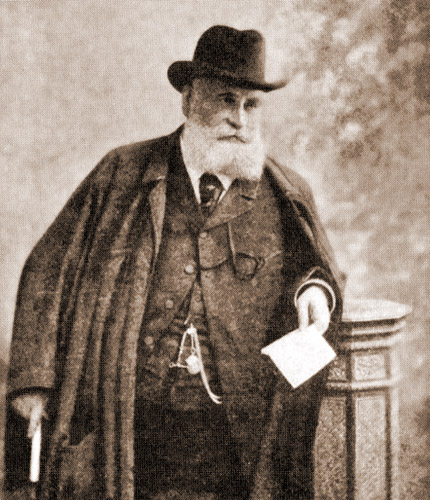Chernevskiy Sergey Antipovich
Chernevskiy Sergey Antipovich
CHERNEVSKIY Sergey Antipovich (1839 – August 21, 1901) was one of the prominent theatre workers of the Maly Theatre of the last quarter of the nineteenth century. He graduated from the ballet academy and since 1852 worked in the Maly Theatre first under director Bogdanov (whose name is associated with a number of «rearrangements», including the first rearrangement of «Woe from Wit»), and since 1879 until his death was director himself. His legacy and achievements are clearly underestimated and have to be reconsidered. Chernevskiy was scarcely mentioned in a rather dismissive manner in Telyakovsky's Memoirs of 1898-1917 and his image was not refined after the publication of the sister-friendly chapter of the book, written by Shchepkina-Kupernik («Days of My Life», Federation of Writers, 1928, 207 - 222). Sergey’s artistic and administrative flair, as well as sense of delicacy, ability to get along with actors and a great knowledge of their artistic abilities, have ensured the reviviscence of the famous company of the Maly Theatre. He was the first one to apply the Meiningen production methods. It is worth mentioning Chernevskiy’s innovation when staging William Shakespeare’s play «Imogen» («Cymbeline») when, for the first time in Russia, a proscenium was introduced, allowing one to transfer action from one place to another, without drawing down the curtain and without changing the set in front of the audience. The actors of the Maly Theatre also have a lot to thank him for, as Sergey encouraged holding benefit performances. No wonder that official obituary of the «Yearbook» (1901-1902, Appendix 3, p. 71) remembered Chernevskiy for winning «the name of the best director in Russia thanks to his incessant energies.» His correspondence with Lenskiy shows that his authority, even in the eyes of the «untamable» Lenskiy, was unquestioned. Chernevskiy was eager to take the production culture of the Maly Theatre to a new level, place greater emphasis on classical and historical plays. Before staging Leo Tolstoy’s drama «The Power of Darkness» in 1895, he went to Tolstoy’s house in Yasnaya Polyana, and brought with him the samples of peasant clothes and utensils.

CHERNEVSKIY Sergey Antipovich (1839 – August 21, 1901) was one of the prominent theatre workers of the Maly Theatre of the last quarter of the nineteenth century. He graduated from the ballet academy and since 1852 worked in the Maly Theatre first under director Bogdanov (whose name is associated with a number of «rearrangements», including the first rearrangement of «Woe from Wit»), and since 1879 until his death was director himself. His legacy and achievements are clearly underestimated and have to be reconsidered. Chernevskiy was scarcely mentioned in a rather dismissive manner in Telyakovsky's Memoirs of 1898-1917 and his image was not refined after the publication of the sister-friendly chapter of the book, written by Shchepkina-Kupernik («Days of My Life», Federation of Writers, 1928, 207 - 222). Sergey’s artistic and administrative flair, as well as sense of delicacy, ability to get along with actors and a great knowledge of their artistic abilities, have ensured the reviviscence of the famous company of the Maly Theatre. He was the first one to apply the Meiningen production methods. It is worth mentioning Chernevskiy’s innovation when staging William Shakespeare’s play «Imogen» («Cymbeline») when, for the first time in Russia, a proscenium was introduced, allowing one to transfer action from one place to another, without drawing down the curtain and without changing the set in front of the audience. The actors of the Maly Theatre also have a lot to thank him for, as Sergey encouraged holding benefit performances. No wonder that official obituary of the «Yearbook» (1901-1902, Appendix 3, p. 71) remembered Chernevskiy for winning «the name of the best director in Russia thanks to his incessant energies.» His correspondence with Lenskiy shows that his authority, even in the eyes of the «untamable» Lenskiy, was unquestioned. Chernevskiy was eager to take the production culture of the Maly Theatre to a new level, place greater emphasis on classical and historical plays. Before staging Leo Tolstoy’s drama «The Power of Darkness» in 1895, he went to Tolstoy’s house in Yasnaya Polyana, and brought with him the samples of peasant clothes and utensils.























